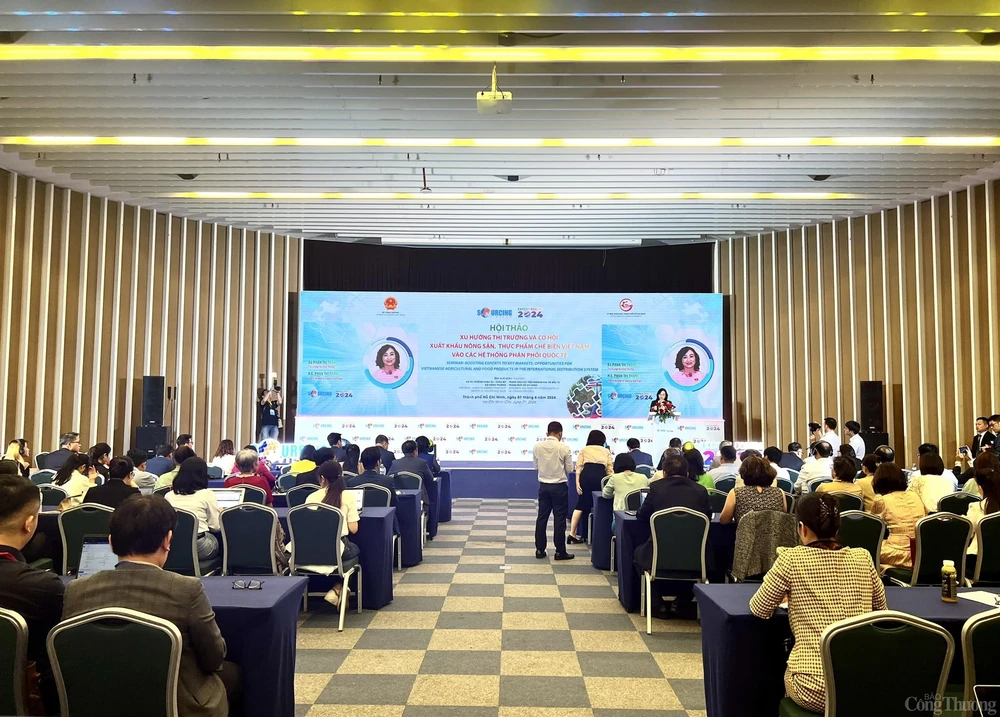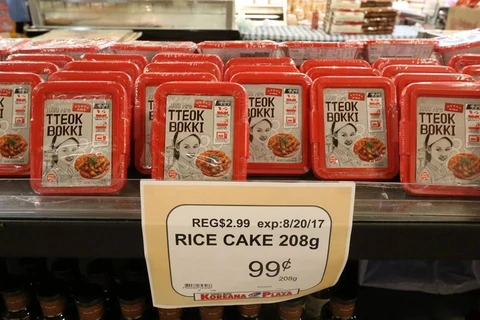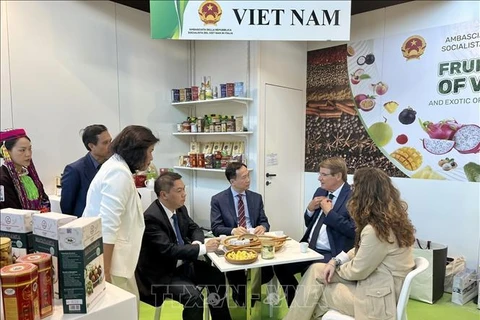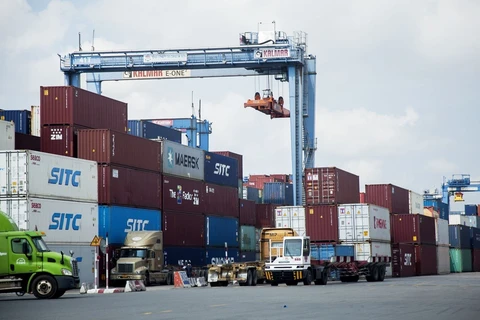
HCM City (VNA) – The Ministry of Industry and Trade hosted a seminar in Ho Chi Minh City on June 7 to explore opportunities for Vietnamese farm produce and processed food to enter global distribution networks.
Deputy Minister of Industry and Trade Phan Thi Thang highlighted Vietnam's resilience in the 2023 global economic downturn, saying that despite a challenging year, Vietnam's agro-forestry-fishery exports surpassed 53 billion USD, driven by rice, fruits and vegetables, coffee and cashew nuts. This positive trend continued in the first five months of 2024, with export of those goods up 21% year-on-year to 24.14 billion USD. Major markets like the US, China and Japan all experienced positive growth of 23.9%, 8.6% and 6.6%, respectively.
However, Thang acknowledged that raw products with minimal processing account for 70-80% of the total exports, which is a great challenge to sustainable export. It limits value and competitiveness, hindering sustainable growth.
Vietnamese agricultural products also face stricter quality standards and origin requirements in import markets. Protectionism is on the rise globally, and a growing emphasis on sustainable development, carbon emission reduction, and environmental protection necessitates swift adaptation and compliance from Vietnamese firms, she said.
Le Thanh Hoa, Deputy Director of the Department of Quality, Processing and Market Development under the Ministry of Agriculture and Rural Development (MARD) underlined the benefits of Free Trade Agreements (FTAs) in lowering tariffs and boosting the competitiveness of Vietnam's strategic farm produce. He further noted a disparity: while processed food, vegetables, and fruits see rapid export growth, livestock and poultry exports remain stagnant despite high production capacity. This is attributed to limitations in meeting disease control and food safety requirements.
Vietnamese Commercial Counsellor in Belgium and the EU Tran Ngoc Quan said the EU spends over 160 billion USD annually on agricultural products, but Vietnam currently captures only about 4% of this market share.
To improve the situation, Quan emphasised the need for Vietnamese firms to stay abreast of market trends and adapt to evolving consumer demands for sustainability throughout the production-transportation-consumption chain. He called on them to establish integrated supply chains and maintain strict quality control measures to mitigate risks and ensure product traceability.
Vietnam is now the world's leading supplier of cashew nuts and pepper, the second largest exporter of coffee, and the third largest exporter of rice. Vietnamese aquaculture has also made remarkable progress by meeting the highest quality standards to join supply chains in the United States, the EU, Japan, and the Republic of Korea./.






















